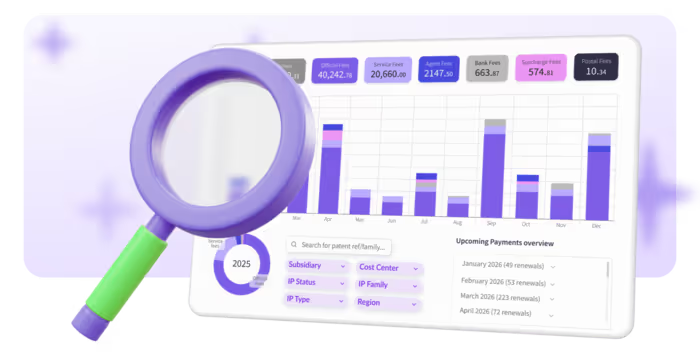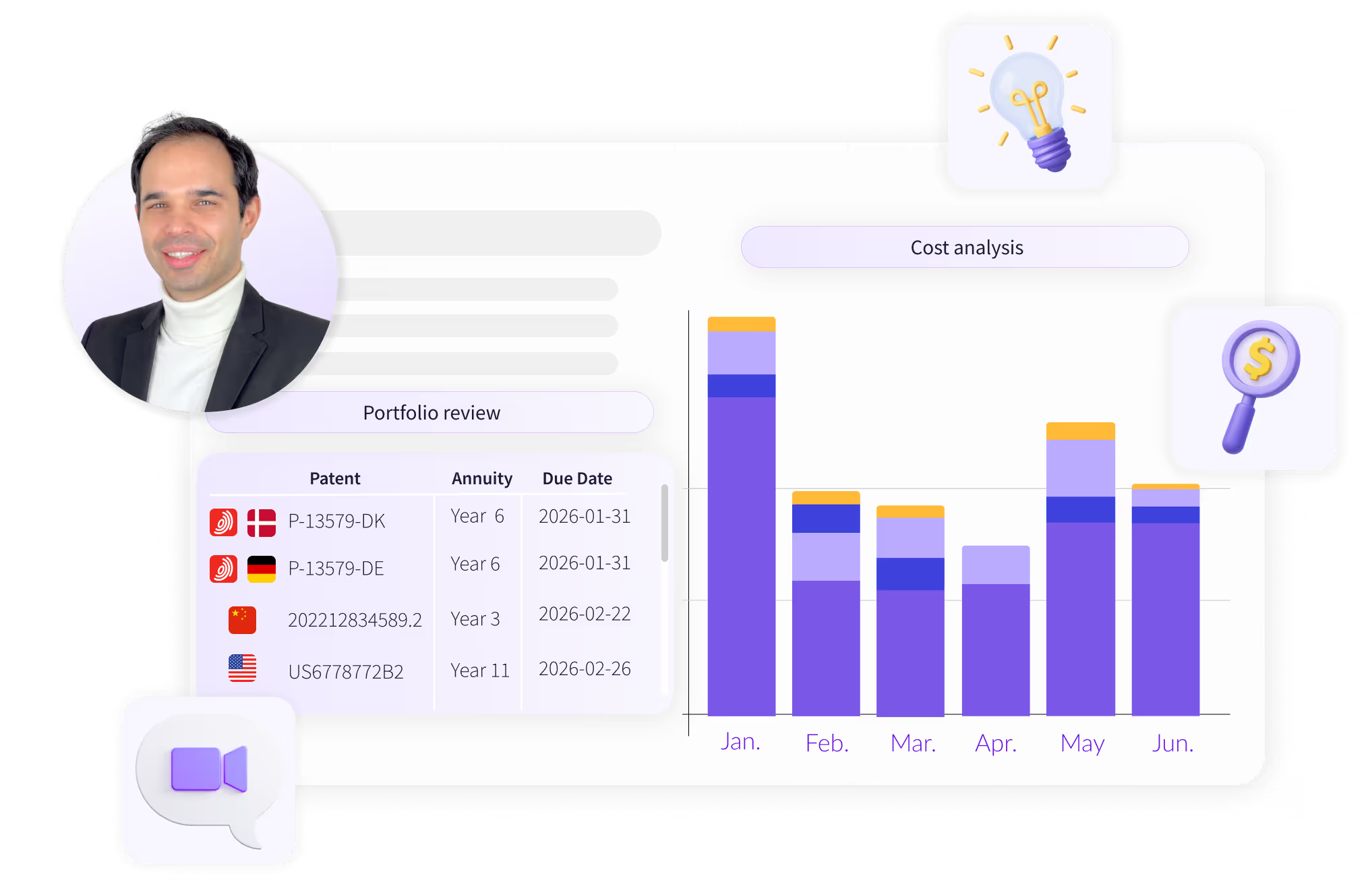TRY OUR NEW (FREE) IP RENEWAL COST CALCULATOR
Calculate
.avif)
In a recent episode of the Legal4Tech podcast, Mads, CEO and co-founder of PatentRenewal.com, joined the conversation to discuss how AI is disrupting the patent industry from patent renewals to novelty assessments, and what it all means for the next generation of legal professionals.
This blog breaks down the key points from the conversation, including how AI is already changing patent management, how IP professionals and inventors can adapt to the evolving IP landscape and what risks they need to consider.
Key takeaways
As Mads explains in the podcast, the shift due to AI is most visible in areas like patent renewals and admin-heavy processes that used to rely heavily on law firms. Mostly because the process is complex, fragmented, and time-consuming. Each country has its own renewal rules, deadlines, and fees, and missing a single deadline could mean losing patent protection entirely.
“The patent renewal industry is shifting away from IP lawyers, who usually handled this work, to now becoming services that you can fully automate. AI is a big part of making that possible.”
He points out that although the underlying patent software must still be 100% accurate and robust, AI plays a significant role in supporting automation and innovation in this space.
For example, it enables automation that improves internal quality control and makes employees more efficient. In the broader IP space, AI helps flag anomalies in large datasets, like unusual fee changes or unexpected deadline behavior across jurisdictions.
Automation brings speed and efficiency, but as Mads emphasizes, human oversight is still essential.
Mads is clear that AI doesn’t eliminate the need for human expertise, it changes the way that expertise is used. Instead of doing repetitive admin work, legal professionals are freed up to handle strategic and judgment-based tasks.
“I think how most companies should think about this is: with AI, it’s like they’ve suddenly gotten a new army of employees. And just like with any employee, you need to make sure they’re performing and living up to the quality and standards you expect as a company.”
He also compares AI to hiring a new junior staff member. You wouldn’t give your biggest legal case to a brand-new hire without training or review, and the same rule applies to AI tools. They’re powerful, but still need oversight.
“We are very focused in our company on creating a very good and easy experience where you don't need to read complicated guidebooks to work with the software that I would be working with day-to-day if I needed to get renewals done.”
This focus on usability means that even non-technical team members can confidently interact with the platform, without needing to decode complex instructions or rely on IT support.
One of the most immediate applications of AI in the patent space is novelty assessments. As companies rush to protect their inventions, they need tools that can quickly and reliably help them assess whether their ideas are patentable.
These early-stage assessments are often the first step before engaging a law firm. AI-powered platforms like the one mentioned, IPRally, allow internal R&D teams to screen a high volume of ideas, identify prior art, and decide which concepts are worth pursuing further. This speeds up decision-making and reduces legal spend.
“I’m very connected with a company based here in our neighboring country, called IP Rally… they’re providing a platform for anyone actually, but I think their target audience is larger companies who are looking to figure out if their new inventions are patentable or not.”
Some businesses are even using these tools as a first screening step, saving law firm consultations for the final stages. It’s a shift toward faster, more scalable internal IP decision-making.
With the rise of browser-based AI tools like ChatGPT, a new concern has emerged in the patent industry: data privacy.
Many users aren’t fully aware that what they enter into these tools can be stored or shared, potentially exposing sensitive intellectual property.
“As soon as you’re using those products just directly in your browser, you are just giving away copyright, whatever you’re pasting in there, and that’s, of course, a huge challenge for confidentiality and your IP as a company.”
Instead, many large organizations are opting for in-house AI deployments or secure enterprise versions that eliminate the risk of data leaks. This lets them use AI safely, without compromising sensitive IP assets.
With more routine IP tasks becoming automated, many IP professionals are wondering how their roles will evolve.
Mads explained how he believes in embracing AI, not resisting it.
“My experience is that most companies around the world are way too slow at adapting these tools. So if you really jump in with both legs and become an expert in using these tools, I actually think that you could use that opportunity to be the higher performer compared to your new colleagues in the first job.”
He backed it up with a personal story:
“ When I graduated and had my first job in the banking industry, I had some experience with software, which was already a huge revolution for them. Very concretely, on my first day of my job, I saved the company around 200,000 euros a year just with software.”
As the conversation came to a close, Mads shared the bigger vision behind PatentRenewal.com: helping inventors protect their ideas faster, cheaper, and with fewer obstacles.
“Our company was founded to help some of the smartest people in the world make a difference. We want to simply help disrupt and innovate the life cycle from when someone gets an amazing idea until they can get protection for it.”
PatentRenewal.com is starting with IP renewals, but the long-term goal is to broaden the scope of IP support, so inventors can focus on solving real-world problems, not paperwork.
If you’d like to learn more about how PatentRenewal.com helps you streamline your patent renewals while staying in control of your IP portfolio, explore our solution today.
This blog highlights key insights from the Legal4Tech podcast episode featuring our CEO, Mads Viborg Jørgensen.
Interested in a free IP renewal consultation? Benchmark your current IP renewal setup and costs against market standards.
